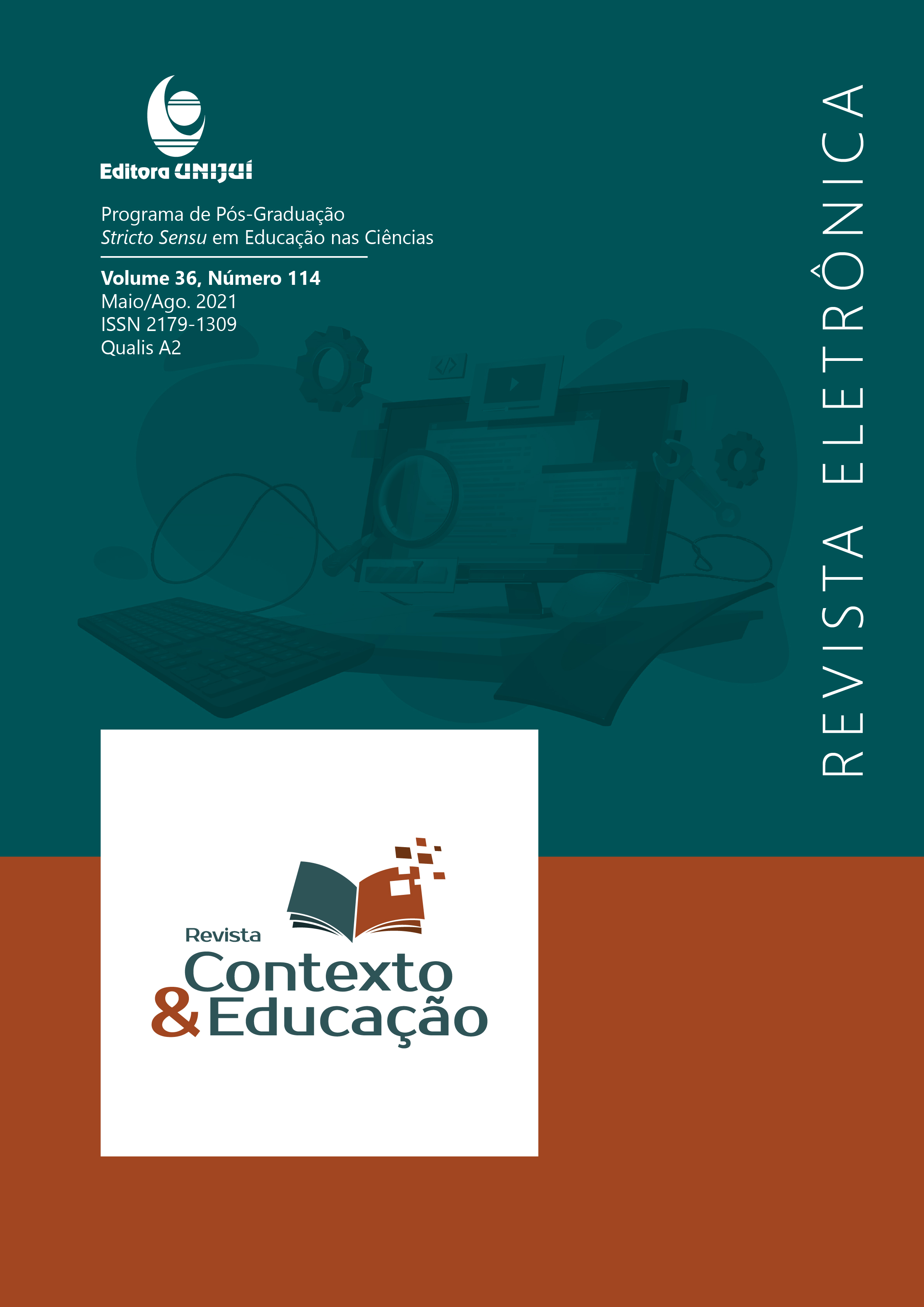AMORISMO: A CONSTRUÇÃO DE UM ÍNDICE EMOCIONAL ATRAVÉS DO MAPEAMENTO SOCIOEMOCIONAL
LOVENESS: THE CONSTRUCTION OF AN EMOTIONAL INDEX THROUGH A SOCIOEMOTIONAL MAPPING
DOI:
https://doi.org/10.21527/2179-1309.2021.114.316-331Resumo
Este artigo tem por objetivo analisar a importância do diagnóstico socioemocional para compreensão de comportamentos e processos de desenvolvimento e aprendizagem de alunos do ensino fundamental. A construção do índice emocional ocorreu mediante o mapeamento socioemocional obtido por meio de oficinas de afetividade ministradas para 63 alunos de 7°s anos do Ensino Fundamental de uma escola pública do município de Campo Bom-RS. O índice foi elaborado a partir de uma abordagem quali-quantitativa (mista) de pesquisa, mediante os resultados obtidos nas oficinas aplicadas, considerando a importância da concepção do amorismo para o ensino, através da educação socioemocional no ensino básico. Foram obtidos como resultados do índice emocional: 5 alunos com conceito muito bom, 50 com conceito bom e 8 com conceito ruim. Os dados advindos da aplicação do índice emocional aqui proposto poderão ser úteis para estabelecer um novo olhar aos alunos envolvidos que, por ventura, apresentarem lacunas de cunho social e emocional. Dessa forma, os professores terão acesso aos perfis individuais e poderão potencializar o processo de ensino aprendizagem através de práticas pedagógicas que abordem as competências afetivas e socioemocionais. O índice emocional apresentado neste estudo pode ser replicado a outros contextos e realidades educacionais tornando-se um método de aplicação no ensino.
Palavras-chave: Amorismo. Oficinas de afetividade. Ensino Fundamental. Índice emocional.
Downloads
Publicado
Como Citar
Edição
Seção
Licença
Ao publicar na Revista Contexto & Educação, os autores concordam com os seguintes termos:
Os trabalhos seguem a licença Creative Commons Atribuição 4.0 Internacional (CC BY 4.0), que permite:
Compartilhar — copiar e redistribuir o material em qualquer meio ou formato;
Adaptar — remixar, transformar e criar a partir do material para qualquer fim, inclusive comercial.
Essas permissões são irrevogáveis, desde que respeitados os seguintes termos:
Atribuição — os autores devem ser devidamente creditados, com link para a licença e indicação de eventuais alterações realizadas.
Sem restrições adicionais — não podem ser aplicadas condições legais ou tecnológicas que restrinjam o uso permitido pela licença.
Avisos:
A licença não se aplica a elementos em domínio público ou cobertos por exceções legais.
A licença não garante todos os direitos necessários para usos específicos (ex.: direitos de imagem, privacidade ou morais).
A revista não se responsabiliza pelas opiniões expressas nos artigos, que são de exclusiva responsabilidade dos autores. O Editor, com o apoio do Comitê Editorial, reserva-se o direito de sugerir ou solicitar modificações quando necessário.
Somente serão aceitos artigos científicos originais, com resultados de pesquisas de interesse que não tenham sido publicados nem submetidos simultaneamente a outro periódico com o mesmo objetivo.
A menção a marcas comerciais ou produtos específicos destina-se apenas à identificação, sem qualquer vínculo promocional por parte dos autores ou da revista.
Contrato de Licença (para artigos publicados a partir de outubro/2025): Os autores mantém os direitos autorais sobre seu artigo, e concedem a Revista Contexto & Educação o direito de primeira publicação.


